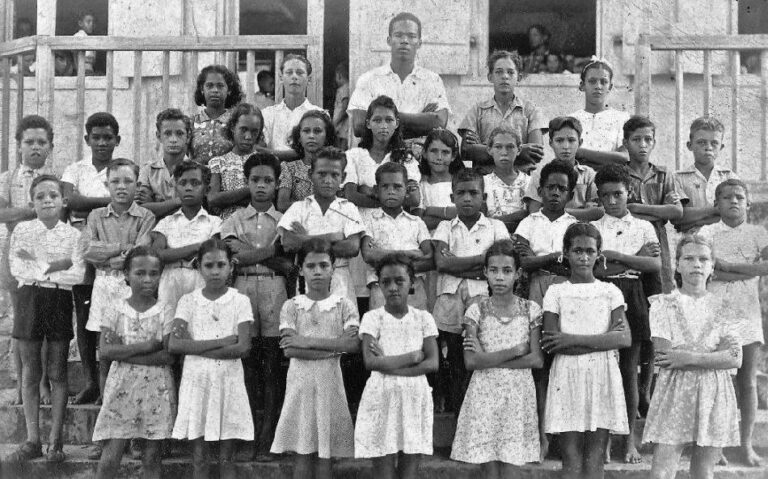In Guadeloupe, the education system follows the French national curriculum, as it is an overseas department of France. This means the types of schools are structured similarly to those in mainland France, with education both free and compulsory for children aged 3 to 16. Here’s a breakdown:
Types of Schools in Guadeloupe
1. École Maternelle (Preschool / Nursery School)
- Ages: 3–6
- Levels:
- Petite section (3–4 years)
- Moyenne section (4–5 years)
- Grande section (5–6 years)
- Focus on socialization, basic literacy/numeracy, and motor skills.
2. École Élémentaire (Primary School)
- Ages: 6–11
- Grades:
- Cours préparatoire (CP) – Age 6–7
- Cours élémentaire 1 (CE1) – Age 7–8
- Cours élémentaire 2 (CE2) – Age 8–9
- Cours moyen 1 (CM1) – Age 9–10
- Cours moyen 2 (CM2) – Age 10–11
- Subjects: French, math, geography, history, science, art, physical education.
3. Collège (Middle School / Junior High)
- Ages: 11–15
- Grades:
- Sixième (6th)
- Cinquième (7th)
- Quatrième (8th)
- Troisième (9th)
- Ends with the Diplôme National du Brevet exam.
- Foreign languages, computing, and advanced sciences introduced.
4. Lycée (High School / Senior Secondary School)
- Ages: 15–18
- Grades:
- Seconde (10th)
- Première (11th)
- Terminale (12th)
- Types of Lycées:
- Lycée général: Academic route (for university)
- Lycée technologique: Technology-based education
- Lycée professionnel: Vocational training (practical skills, trades)
- Ends with the Baccalauréat (Bac) exam – required for university admission.
5. Écoles Privées (Private Schools)
- Often run by religious institutions (especially Catholic).
- Follow the same national curriculum.
- Some offer bilingual or alternative pedagogy (e.g., Montessori).
6. Higher Education Institutions
- University of the Antilles – Guadeloupe Campus: Offers undergraduate to postgraduate programs.
- IUTs & BTS Schools: Technical training in business, engineering, tourism, etc.
- Nursing, Teacher Training, and Maritime Schools
7. Specialized & Alternative Schools
- Special Education Schools (SEGPA, ULIS): For students with disabilities or learning difficulties.
- Apprenticeship Centers (CFA): Combine school with work-based training.
- Music, dance, and arts schools (e.g., Conservatoires)
- Religious and cultural institutions offering additional education (e.g., Sunday schools, Quranic classes)



